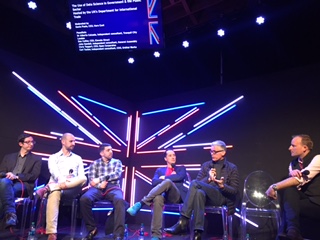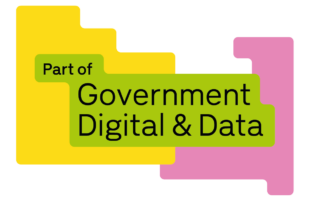The Department for International Trade (DIT) and a group of private sector innovators joined the world’s biggest names in the tech industry at SxSW Conference in Austin, Texas recently. The department, which is noted as industry-leading in its aspirational use of data science and technology to increase UK trade and foreign investment, was invited to form an expert panel.

Modulator (Far right): Gavin Poole CEO Here East
The panel discussed the significant challenges governments face in an increasingly connected world, and how they can better attract the best expertise in the tech industry to help them to disrupt and improve traditional service delivery.
The panel was unanimous in their agreement that government offered tech and data professionals some of the world’s most challenging and interesting work. How to deal with climate change, changing demographics, pressures on health and social care and the economy - to name but a few.
Not only did they believe these challenges could stimulate and attract the best innovators in the industry, they considered the altruistic nature of many tech professionals to be to be a unique selling point for government that should be better exploited.
Data science consultant John Sandall talked about his personal experience of working with the UK government. His perception of government was very different from the reality and suggested that government should be bold in their approach to recruitment, focusing on challenges and potential impact rather than traditional job roles, and proactively recruiting at universities alongside tech giants.
Elevate CEO Dan Collier dismissed the need to compete with tech giants, believing tech professionals were attracted to each for different reasons. He and Carl Tucker challenged the aspiration to retain staff for extended periods or life, celebrating the development of skills and knowledge transfer associated with shorter fixed term contracts.
The panel closed with some debate around balancing the need for short term contracts with the need for personal end to end delivery and ownership of services and products. Chris Taggart encouraged contractors to take ownership and responsibility for delivery, and openly discussed with the audience the positive and negative impact of the sometimes transient nature of the industry.
Both panel and audience agreed that government not only offered the opportunity to work on some of the most interesting challenges in the world but had been seen to trust professionals to experiment with technology to solve these problems, not just in their own area of delivery but across government departments. DIT was specifically commended as visionary in their use of open data to unlock business value and increase efficiency.
DIT is not like other government departments in its approach to data and technology. The panel highlighted their desire for open, collaborative dialogue with the tech industry to promote and inform their transformation.
An improved economy is everybody’s business and DIT intends to take the tech conversation to those best placed to change the world, whether they are tech professionals or end users.

